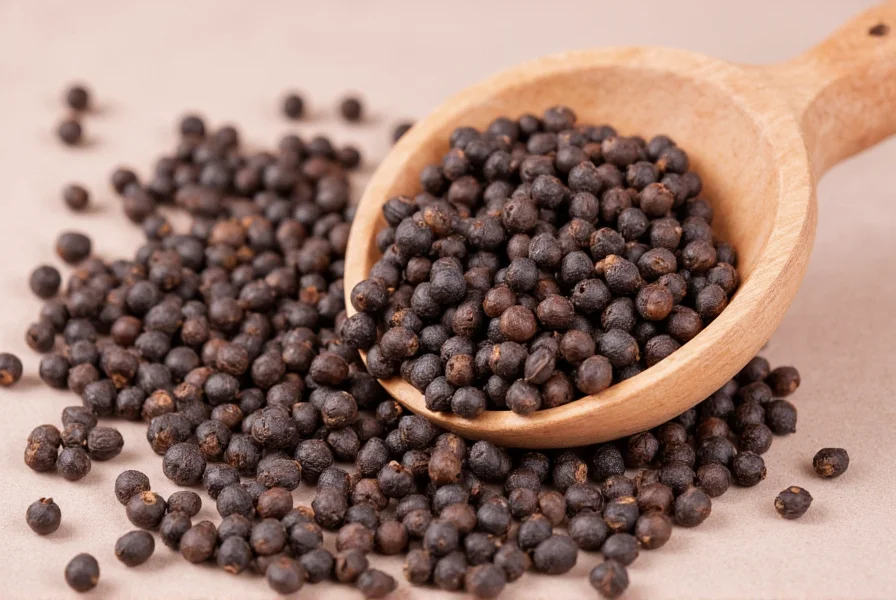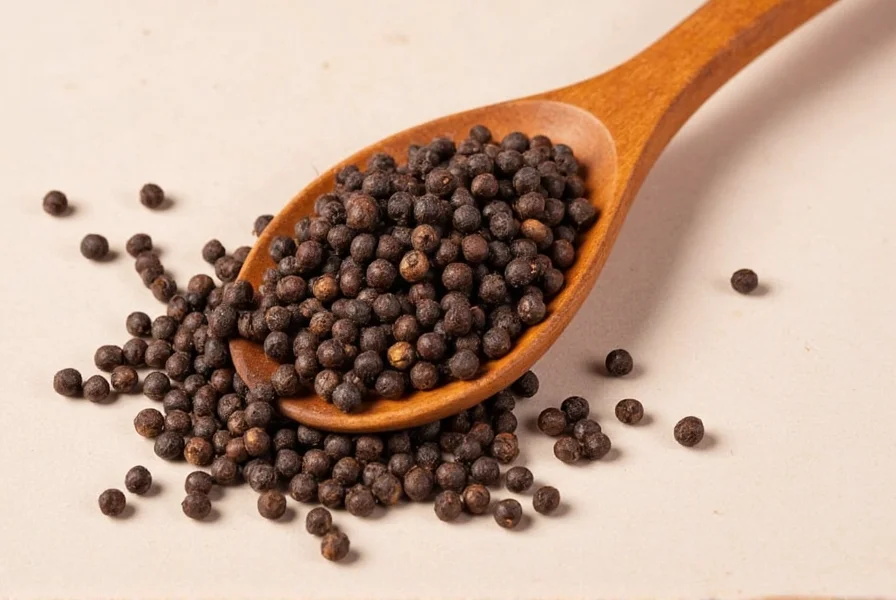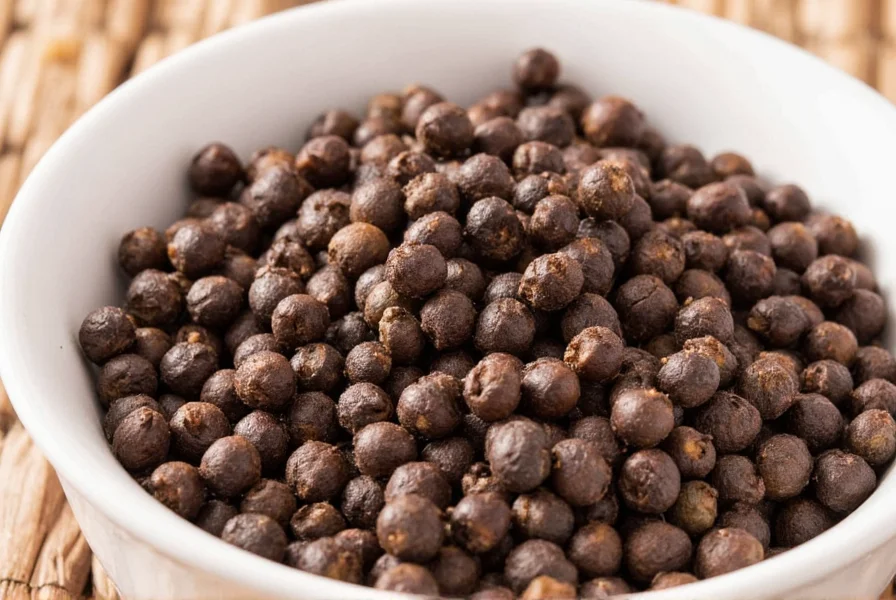Black pepper, scientifically known as Piper nigrum, has been used for centuries not only as a seasoning but also in traditional medicine systems worldwide. This common kitchen staple contains bioactive compounds that contribute to several potential health benefits, making it more than just a flavor enhancer.
The Science Behind Black Pepper's Health Properties
The primary active component in black pepper is piperine, which constitutes approximately 4-6% of the spice by weight. Piperine is responsible for black pepper's pungent taste and many of its studied biological effects. Research published in Phytotherapy Research indicates that piperine can increase the bioavailability of certain nutrients and medications by up to 2,000%, particularly enhancing the absorption of curcumin from turmeric.
Nutritional Profile of Black Pepper
While used in small quantities, black pepper contributes more than just flavor to your meals. One teaspoon (approximately 2.3 grams) of ground black pepper contains:
| Nutrient | Amount per Teaspoon | % Daily Value |
|---|---|---|
| Calories | 9 | 0.5% |
| Dietary Fiber | 0.5g | 2% |
| Manganese | 0.1mg | 4% |
| Iron | 0.2mg | 1% |
| Vitamin K | 2.8mcg | 2% |
Though these amounts seem small, the bioactive compounds in black pepper exert effects disproportionate to their nutritional content.
Documented Health Benefits of Black Pepper
Enhanced Nutrient Absorption
One of black pepper's most well-documented benefits is its ability to improve the body's absorption of certain nutrients. Studies show that piperine can increase the absorption of selenium, beta-carotene, and vitamins B6 and C. This property makes black pepper particularly valuable when combined with other health-promoting foods.
Antioxidant Properties
Black pepper contains several compounds with antioxidant activity. Research in the Journal of Agricultural and Food Chemistry demonstrates that piperine helps neutralize free radicals and may protect against oxidative stress, which is linked to chronic diseases and aging.

Digestive Health Support
Traditional medicine systems have long used black pepper to support digestion. Modern research suggests it may stimulate digestive enzymes and improve gut motility. A study in Food Chemistry found that black pepper extract increased the activity of digestive enzymes by up to 30% in laboratory tests.
Anti-inflammatory Effects
Chronic inflammation is associated with numerous health conditions. Piperine has demonstrated anti-inflammatory properties in several studies. Research published in Planta Medica showed that piperine inhibited inflammatory pathways in cell studies, suggesting potential benefits for inflammatory conditions.
Limitations of Current Research
While the potential health benefits of black pepper are promising, it's important to understand the limitations of current research:
- Many studies on piperine's effects have been conducted in laboratory settings or on animals, not humans
- Most research uses concentrated piperine extracts, not culinary amounts of black pepper
- Long-term human studies on black pepper consumption are limited
- Individual responses to black pepper can vary significantly
Potential Side Effects and Considerations
Black pepper is generally recognized as safe (GRAS) by the FDA when used as a food ingredient. However, certain considerations apply:
Digestive Sensitivity
Consuming large amounts of black pepper may cause stomach irritation, heartburn, or digestive discomfort in sensitive individuals. Those with gastrointestinal conditions like ulcers or inflammatory bowel disease should moderate their intake.
Medication Interactions
Due to its effect on nutrient absorption, black pepper may interact with certain medications. Piperine can affect how the body metabolizes drugs processed by the CYP3A4 enzyme system, potentially increasing or decreasing medication effectiveness. Individuals taking prescription medications should consult their healthcare provider before consuming black pepper supplements.

Pregnancy and Breastfeeding
While culinary amounts of black pepper are considered safe during pregnancy and breastfeeding, concentrated supplements should be avoided without medical supervision.
Practical Recommendations for Consumption
To maximize potential benefits while minimizing risks:
- Use freshly ground black pepper when possible, as it contains higher levels of active compounds
- Combine black pepper with turmeric to enhance curcumin absorption
- Limit consumption to typical culinary amounts (1/4 to 1/2 teaspoon per serving)
- Avoid high-dose piperine supplements without medical guidance
- Store black peppercorns in an airtight container away from light and heat
Conclusion: Balancing Benefits and Realistic Expectations
Black pepper offers genuine health benefits when used as part of a balanced diet, particularly through its ability to enhance nutrient absorption and provide antioxidant support. However, it's not a miracle cure, and expectations should be realistic. The health advantages come from consistent culinary use rather than occasional consumption. As with any dietary component, moderation is key, and black pepper works best as part of an overall healthy eating pattern rather than as a standalone solution.
Frequently Asked Questions
How much black pepper should I consume daily for health benefits?
For culinary use, 1/4 to 1/2 teaspoon of freshly ground black pepper per day provides potential benefits without risk of side effects for most people. This amount is sufficient to enhance nutrient absorption when combined with other foods like turmeric. Higher amounts don't necessarily provide additional benefits and may cause digestive discomfort.
Can black pepper help with weight loss?
While some preliminary research suggests piperine might influence metabolism and fat accumulation, there's insufficient evidence to claim black pepper directly causes weight loss. Any potential effect would be minimal compared to diet and exercise. Black pepper can be part of a healthy diet that supports weight management, but it shouldn't be relied upon as a weight loss solution.
Is black pepper safe for people with acid reflux?
Black pepper may trigger symptoms in some people with acid reflux or GERD due to its pungency. While small culinary amounts are generally well-tolerated, those with sensitive digestive systems might experience heartburn or discomfort. If you have acid reflux, start with very small amounts and monitor your body's response. Freshly ground pepper may be less irritating than pre-ground varieties.
Does the type of black pepper matter for health benefits?
Yes, the type and freshness of black pepper affect its potency. Whole peppercorns retain piperine content longer than pre-ground pepper. Freshly ground Tellicherry or Malabar peppercorns (from India) typically have higher piperine concentrations than standard supermarket varieties. Organic black pepper may contain fewer contaminants. For maximum benefit, purchase whole peppercorns and grind them as needed.
Can black pepper interact with blood pressure medications?
Black pepper in culinary amounts is unlikely to significantly affect blood pressure medications. However, high-dose piperine supplements might potentially interact with certain medications metabolized by the liver, including some blood pressure drugs. If you take medication for hypertension, consult your healthcare provider before taking black pepper supplements, but normal dietary use should be safe.











 浙公网安备
33010002000092号
浙公网安备
33010002000092号 浙B2-20120091-4
浙B2-20120091-4